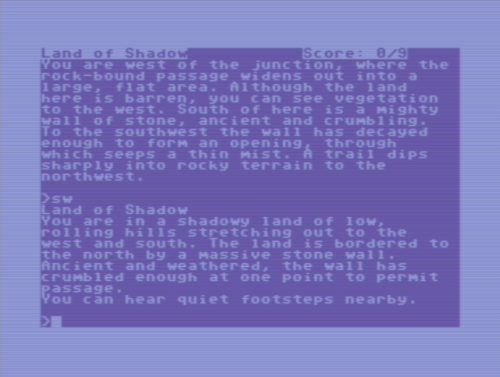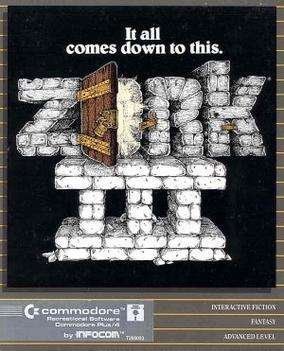3 PART ZORK FEATURETTE: PART 3
The final installment in the original Zork Trilogy, Zork III: The Dungeon Master sees you return as the nameless Adventurer, this time to become the next Dungeon Master and rule over the Great Underground Empire. With a somewhat darker and more isolated tone than the first two games, it helps set the mood for this being the end of the trilogy.
This story once again received glowing reviews from a number of critics, just like its predecessors, despite a significant bug present in the game: having the Elvish sword in your inventory at the endgame makes it unwinnable. This flaw aside, Zork III had all the charm, wit, humor and cleverness that made the entire series a smash hit, and remains one of the most loved game series today because of it.
https://darth-azrael.tumblr.com/post/182210127368/c64screengrabs-3-part-zork-featurette-part-3
Once upon a time, computer games that consisted only of text were a common thing. Sometimes called text adventures and sometimes referred to as interactive fiction, these games were truly more like interactive novels. While text adventures were never my favorite genre, they did have a way of sparking your imagination like no other type of game really could.
The Zork series is probably the best known of this genre. Infocom got famous for creating a variety of “Interactive Fiction” and Zork was their flagship series. Eventually, Infocom moved on to graphical adventures and other types of games before vanishing in the mists of time but they will probably always be best known for Zork.

Because Infocom’s games were built on on a custom virtual machine known as the Z-machine, Zork III, like its predecessors, was available on a huge number of platforms relative to most games. These include the PDP-10, Atari 8-bit, Commodore 64, CP/M, TRS-80, PC (DOS), Apple II, Amiga, Amstrad CPC, Amstrad PCW, Macintosh, Atari ST, NEC PC-9801, MSX, PlayStation, Sega Saturn, and the TI-99/4A among others. The screenshots above will be recognizable to anyone who ever owned a Commodore 64.



